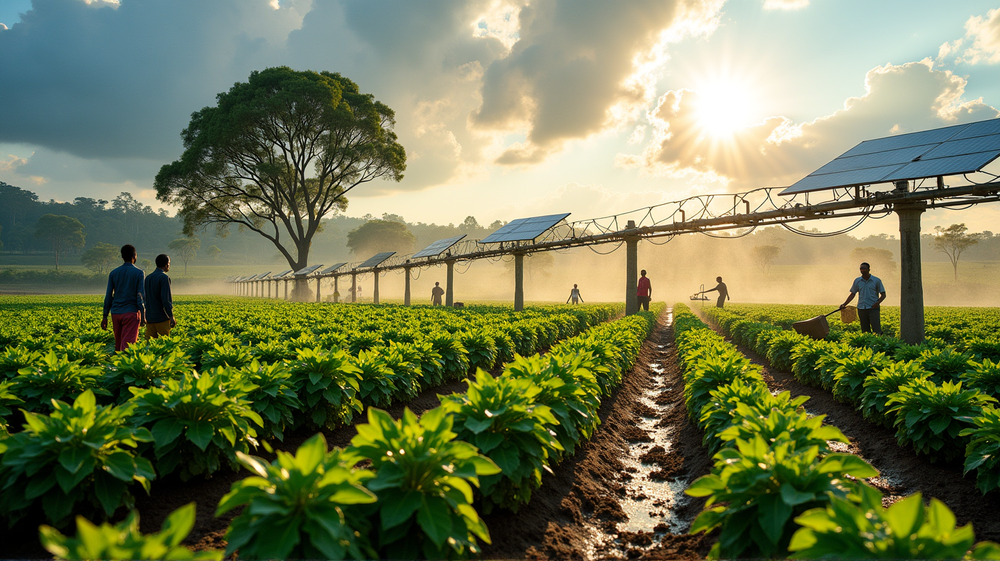Kenya has embarked on a transformative journey with the launch of the Solar Energy for Agricultural Resilience (SoLAR) Phase II Project. Spearheaded by the Ministry of Water, Sanitation and Irrigation, this initiative aims to revitalize agriculture through solar energy, ensuring food security while combating climate change.
Igniting Agricultural Resilience
Speaking at the project’s inception in Nairobi, Eng. Vincent Kabuti highlighted the potential of solar energy to empower smallholder farmers with affordable irrigation solutions. This initiative promises to unlock Kenya’s vast agricultural potential, as nearly 89% of the land could support farming if water resources are effectively managed. According to Eng. Kabuti, this can vastly improve food systems by stabilizing water supply across the country.
Lessons from South Asia
Unique to SoLAR II is its global learning approach. Leveraging lessons from similar projects in South Asia, the initiative plans to adapt successful models to the African context. Muluken Elias, from IWMI, stresses the transformative power of solar energy in farming, increasing productivity and fostering resilience. South-South collaborations are set to drive this adaptation.
Strategic Vision and Policies
Kenya’s ambition aligns with multiple national agendas, including Vision 2030 and the Bottom-Up Economic Transformation Agenda. Policies like NISIP provide a strategic framework to scale solar irrigation. Eng. Kabuti indicated the government’s robust political commitment to closing policy gaps and enhancing farmer awareness.
A Comprehensive Approach
The $2.5 million program, funded until December 2028, ensures equitable access for women, youth, and marginalized groups to solar-powered farming opportunities. The project will include developing solar-suitability maps, establishing financing mechanisms like Solar4Africa, and fostering capacity through training initiatives. These efforts aim to reshape Kenya’s agricultural landscape into a climate-smart, inclusive economy.
Transformative Potential Unleashed
Dr. Inga Jacobs-Mata outlines the broader vision: harnessing solar energy to create sustainable, inclusive food systems. Through collaboration with governments, private sector, and communities, SoLAR II seeks to create an enabling environment for solar technologies.
Walter Kiprono from GOGLA emphasizes the scalability of solar-powered systems, suitable for small-scale and commercial operations alike. The inception workshop was pivotal in aligning governmental, commercial, and civil society efforts towards promoting solar adoption.
As Kenya races towards a climate-resilient future, SoLAR II is geared to transform agriculture, driving the nation closer to food security and resilience against climate adversities. According to Africa Science News, this could serve as a model for other nations looking to leverage renewable energy in agriculture.












